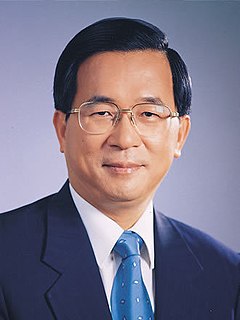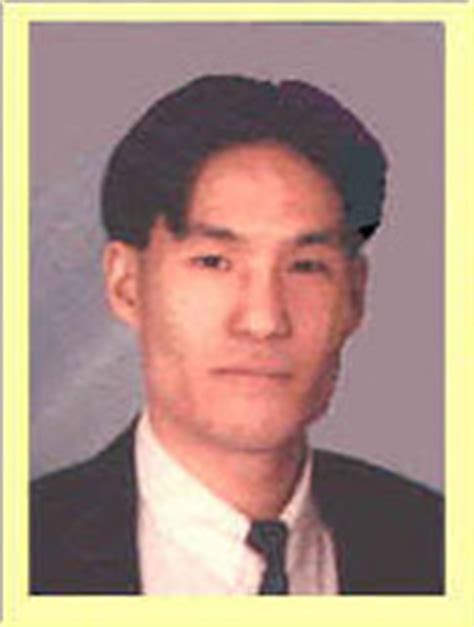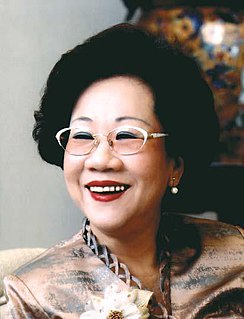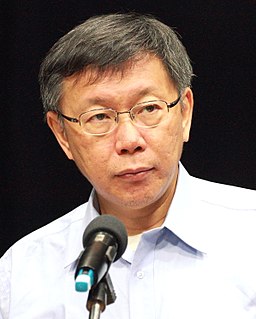A Quote by Mike Simpson
Ultimately, China may use force to push for unification with Taiwan, a scenario we all must work to prevent.
Related Quotes
The libertarian approach is a very symmetrical one: the non-aggression principle does not rule out force, but only the initiation of force. In other words, you are permitted to use force only in response to some else's use of force. If they do not use force you may not use force yourself. There is a symmetry here: force for force, but no force if no force was used.
It can be argued - and rightly - that Taiwan is not just another regional issue: after all, the Chinese regard it as part of China. But Taiwan is also a regional issue for three reasons. First, the overthrow or even the neutering of democracy in Taiwan, which is what Beijing effectively demands, would be a major setback for democracy in the region as a whole. Second, if the Chinese were able to get their way by force in Taiwan, they would undoubtedly be tempted to do the same in other disputes. And third, there is no lack of such disputes to provoke a quarrel.
The most fundamental paradox is that if we're never to use force, we must be prepared to use it and to use it successfully. We Americans don't want war and we don't start fights. We don't maintain a strong military force to conquer or coerce others. The purpose of our military is simple and straightforward: we want to prevent war.
In the short term, it would not have made it possible to resume relations, because in the Chinese mind, the humiliation of China started with the annexation of Taiwan by Japan. If the United States had suddenly declared Taiwan as a separate state - for which we would have had no support among other nations - the consequences would have been giving up our relationship with China and committing ourselves to a long-term conflict with China.
The way in which these two practices contain each other is that it has always been possible to use the one against the other: to use racism-sexism to prevent universalism from moving too far in the direction of egalitarianism; to use universalism to prevent racism-sexism from moving too far in the direction of a caste system that would inhibit the work force mobility so necessary for the capitalist accumulation process.
China is a main energy consumer and, therefore, is also a big greenhouse gas emitter. We must use energy resources rationally and must conserve. This needs us to adjust our economic structure, transform the mode of development, to make economic development more dependent on progress of science and technology and the quality of the work force.































